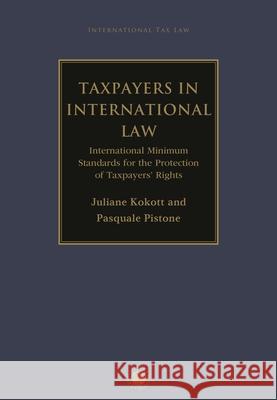Taxpayers in International Law: International Minimum Standards for the Protection of Taxpayers' Rights » książka
topmenu
Taxpayers in International Law: International Minimum Standards for the Protection of Taxpayers' Rights
ISBN-13: 9781509954001 / Angielski / Twarda / 2022 / 648 str.
Taxpayers in International Law: International Minimum Standards for the Protection of Taxpayers' Rights
ISBN-13: 9781509954001 / Angielski / Twarda / 2022 / 648 str.
cena 1152,90
(netto: 1098,00 VAT: 5%)
Najniższa cena z 30 dni: 991,52
(netto: 1098,00 VAT: 5%)
Najniższa cena z 30 dni: 991,52
Termin realizacji zamówienia:
ok. 30 dni roboczych.
ok. 30 dni roboczych.
Darmowa dostawa!
Kategorie:
Kategorie BISAC:
Wydawca:
Beck/Hart/Nomos
Język:
Angielski
ISBN-13:
9781509954001
Rok wydania:
2022
Ilość stron:
648
Oprawa:
Twarda
Wolumenów:
01
Dodatkowe informacje:
Bibliografia
Obwoluta
Obwoluta











